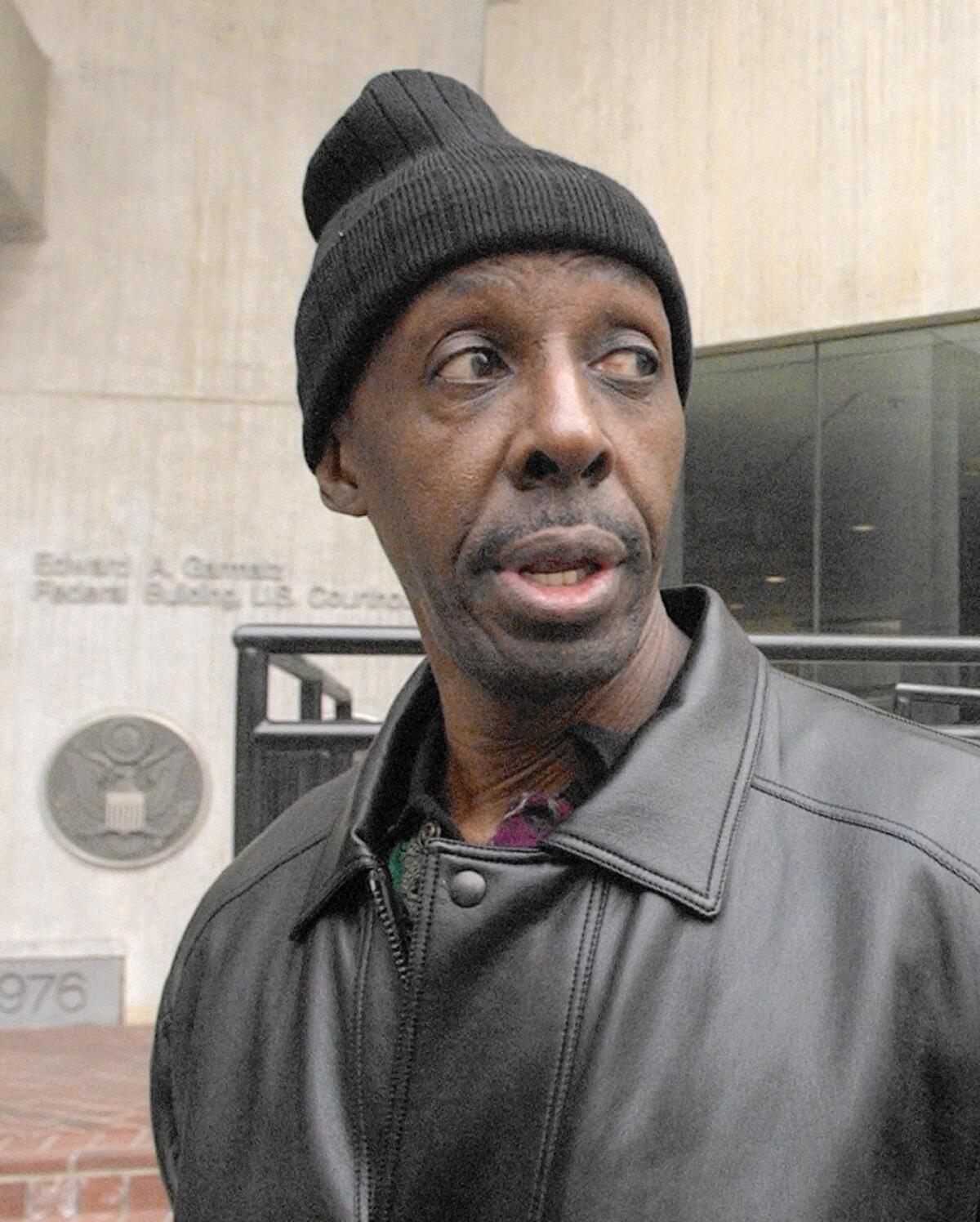Melvin Williams dies at 73; former Baltimore drug kingpin acted in ‘The Wire’

Melvin Williams, whose life as a West Baltimore drug kingpin in the 1960s and post-prison redemption earned him a recurring role in HBO’s “The Wire,” died Thursday at the University of Maryland Medical Center.
Friends said Williams had cancer. He was 73. Known as “Little Melvin” — or Slim or Black, for his preference for dark clothing — he once ruled the illegal drug trade along Pennsylvania Avenue in Baltimore. He served many years in federal prison for drug and gun convictions, and was one of the first criminals profiled on the BET program “American Gangster.”
In later years, he said he had undergone a change. He spoke out against drug use and counseled young men to steer clear of gangs.
Williams explained his epiphany to U.S. District Judge Marvin J. Garbis during a court appearance in 2003: “Sometime in my fifties I became aware that there was a God in charge, and not a Melvin,” he said.
David Simon, who co-created “The Wire,” covered Williams as a reporter for the Baltimore Sun. Later, Simon was having a meal with Williams at a restaurant when they met a former homicide detective who had built a successful case against Williams and was collaborating at the time with Mr. Simon on “The Wire.”
“They shared some very funny moments,” Simon said. Afterward, he said, the pair offered Williams the role of the deacon on “The Wire,” which ran from 2002 to 2008. He appeared in episodes in Seasons 3 and 4.
“Melvin did a lot of damage — and he’d be the first to admit it,” Simon said. “He was a fascinating man in terms of Baltimore and what the drug war was going to do to this country.”
Williams was born and raised in Baltimore. His father drove a cab; his mother was a nurse’s aide. He dropped out of high school in the 11th grade.
Federal prosecutors said Williams eventually presided over a drug trade that grossed $1 million a day. He left prison in 2003 after attorney Michael E. Marr had argued successfully that he didn’t meet the technical requirements for the federal career criminal laws that prosecutors had used to send him to prison.
Most recently, Mr. Williams operated an indoor flea market. Survivors include his wife, Mary, and two daughters. He was preceded in death in 1990 by son Donald A. Williams.
Kelly writes for the Baltimore Sun. Baltimore Sun reporter Frederick N. Rasmussen and the Associated Press contributed to this report.
More to Read
Start your day right
Sign up for Essential California for the L.A. Times biggest news, features and recommendations in your inbox six days a week.
You may occasionally receive promotional content from the Los Angeles Times.






